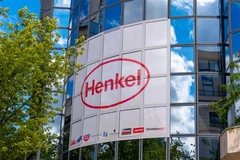Not forever chemicals: Burger King pledges to eliminate PFAS from food packaging worldwide

30 Mar 2022 --- Restaurant Brands International (RBI) – the owner of Burger King, Popeyes, and Tim Hortons – has committed to eliminate potentially harmful PFAS chemicals from its food packaging worldwide by 2025, following engagement with non-profit organization As You Sow.
Burger King’s food packaging was identified as containing these so-called “forever chemicals” in a 2020 study by Toxic-Free Future. Investor pressure from As You Sow and other organizations has helped spur RBI to make this “important” pledge.
“We are glad to see Burger King catching up to its peers by making a commitment to end the use of PFAS in its packaging,” says Ariana Guilak, environmental health program coordinator of As You Sow. “Investors expect food companies to be constantly innovating to make their products safer and more [environmentally] sustainable, and we look forward to the company’s work to identify safe, [environmentally] sustainable packaging alternatives.”

“This is a critically important step toward reducing PFAS exposures to prevent them from building up in women and breast milk,” adds Dr. Sheela Sathyanarayana, professor of pediatrics at the University of Washington and Seattle Children’s Research Institute. “These types of decisions will help protect our most vulnerable populations, and we hope others can take similar actions.”
Restaurant Brands International has pledged to eliminate PFAS from its food packaging globally following investor pressure.A fast-food fashion
The commitment follows similar pledges made by other fast-food chains, including McDonald’s, which agreed to phase out PFAS by 2025. Meanwhile, Wendy’s aimed to achieve this goal by the end of 2021.
RBI’s announcement follows a multi-year campaign to phase out PFAS from retail food packaging led by nonprofit research and advocacy organization Toxic-Free Future. Its actions come nearly one year after restaurant competitors made similar commitments following Toxic-Free Future’s 2018 and 2020 reports testing food packaging materials, including wrappers from Burger King.
The pledge also came the same day as a Consumer Reports study, which tested the packaging of dozens of major fast food chains, including Burger King.
Health advocates nationwide have urged RBI to take action against PFAS in its food packaging since the release of a 2020 investigation that found indications of PFAS in Burger King’s Whopper packaging, among other products. RBI’s announcement follows a multi-year campaign to phase out PFAS from retail food packaging led by Toxic-Free Future.
RBI’s announcement follows a multi-year campaign to phase out PFAS from retail food packaging led by Toxic-Free Future.
PFAS health concerns
Studies have linked PFAS exposure to serious medical conditions such as cancer and reproductive issues. These impacts disproportionately affect low-income communities and communities of color.
As You Sow highlights that PFAS are a group of highly toxic chemicals used in a range of products, including non-stick and stain-repellent products. PFAS are extremely persistent, building up in the environment, drinking water, and human blood.
Also, a study by the Norwegian University of Science and Technology found toxic substances found in plastic consumer products can have “severe consequences” for human obesity levels.
Last year, the European Consumer Organisation conducted tests on single-use tableware like disposable plant fiber bowls, paper straws and palm leaf plates, revealing a wide use of toxic chemicals.
By Natalie Schwertheim











